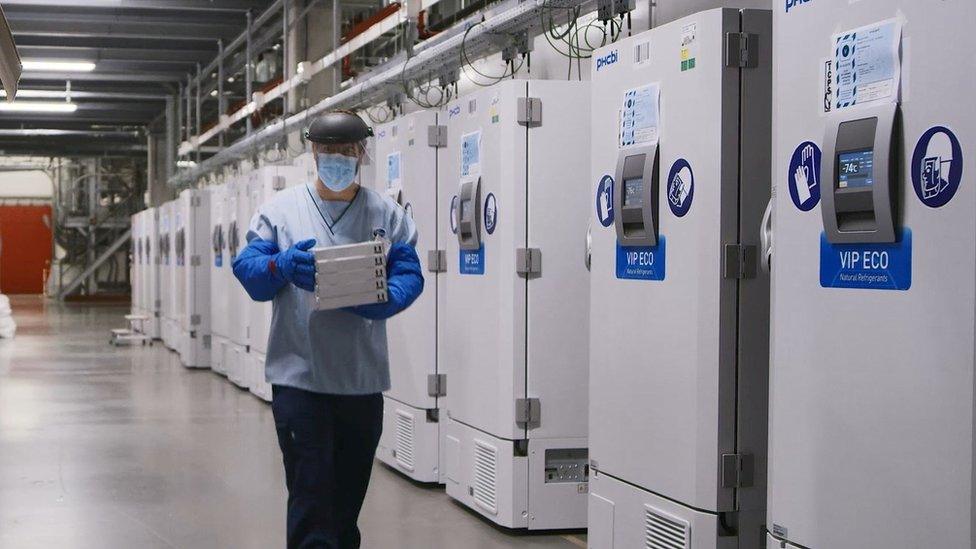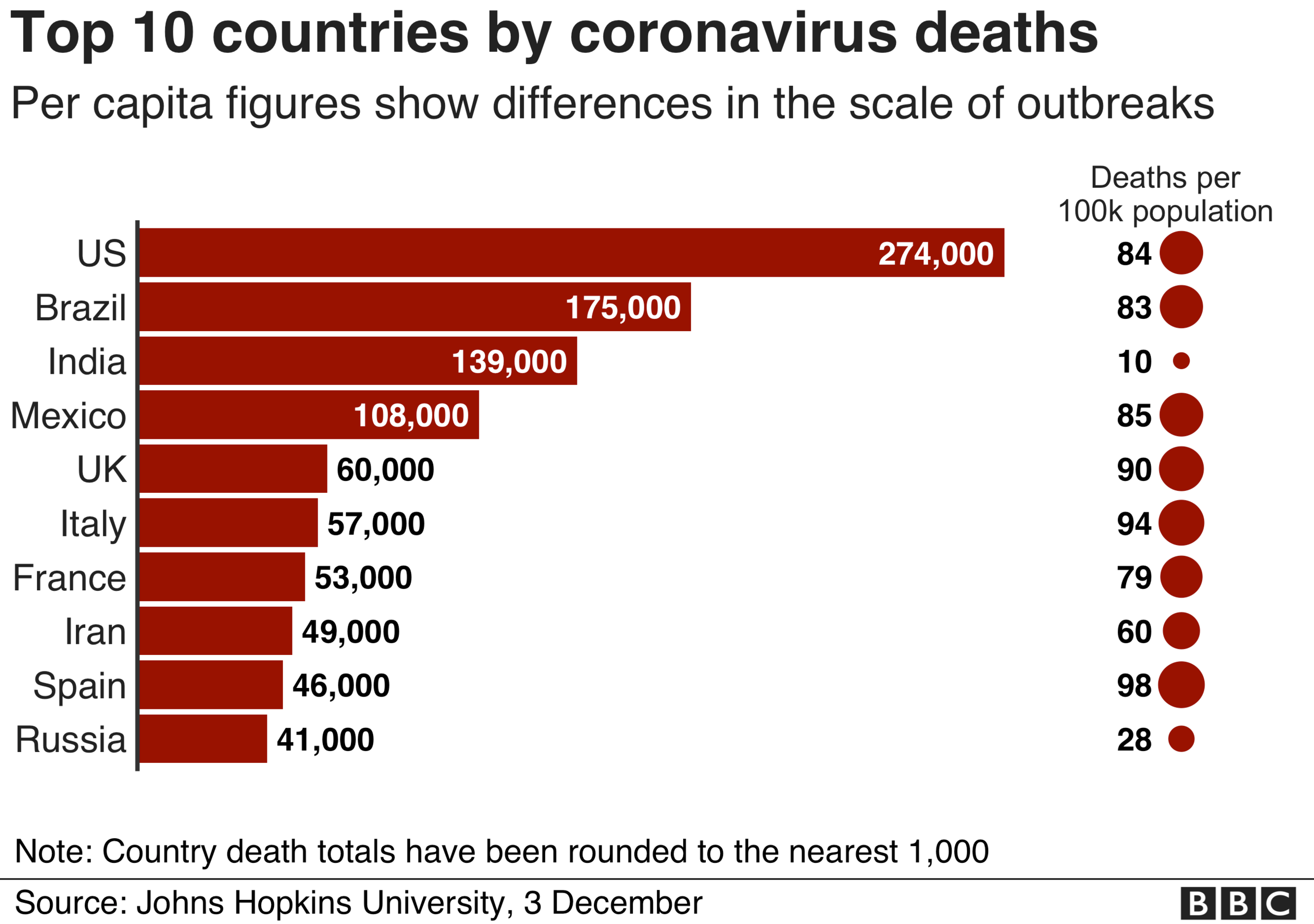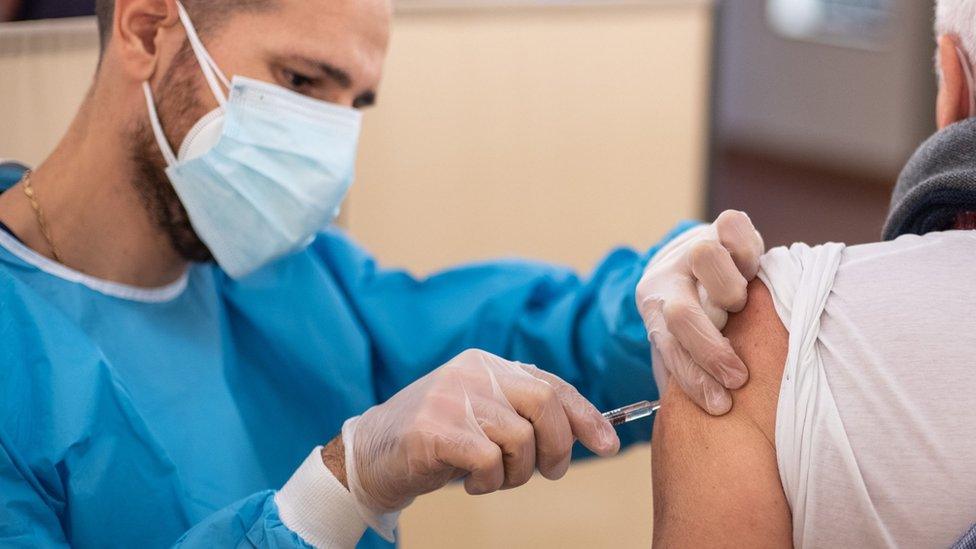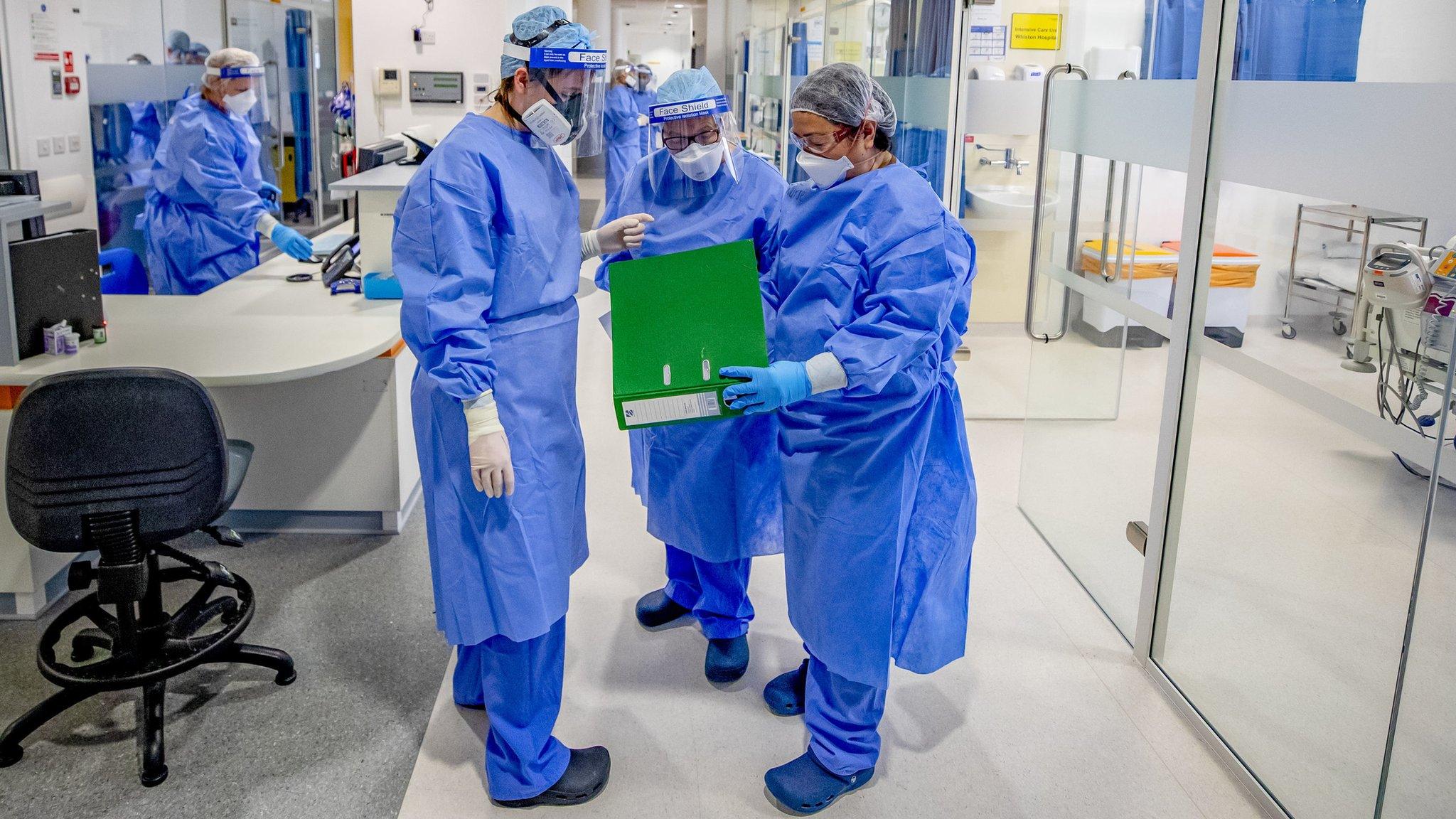Covid: First batch of vaccines arrives in the UK
- Published

The vaccine is made in Belgium and has to be stored at around -70C
The first consignment of the Pfizer/BioNTech coronavirus vaccine has arrived in the UK.
It has been taken to a central hub at an undisclosed location, and will now be distributed to hospital vaccination centres around the UK.
The UK has ordered 40 million doses - enough to vaccinate 20 million people.
England's deputy chief medical officer said the first wave of vaccinations could prevent up to 99% of Covid-19 hospital admissions and deaths.
Speaking to BBC News, Prof Jonathan Van-Tam said that would be possible if everyone on the first priority list took the vaccine and it was highly effective.
He said it was key to distribute the vaccine "as fast" and at the "highest volume" as possible, but he acknowledged there would need to be some flexibility in the list.
The Pfizer/BioNTech vaccines are made in Belgium and have travelled to the UK via the Eurotunnel.
The order in which people will get the jab is recommended by the Joint Committee on Vaccination and Immunisation (JCVI) and decided by the government.
Elderly people in care homes and care home staff have been placed top of the priority list, followed by over-80s and health and care staff.
However, because hospitals already have the facilities to store the vaccine at the necessary -70C, the very first vaccinations are likely to take place there - for care home staff, NHS staff and patients - to lower the risk of wasting doses.
Prof Van-Tam told BBC News: "If we can get through phase one [of the priority list] and it is a highly effective vaccine and there is very, very high up take, then we could in theory take out 99% of hospitalisations and deaths related to Covid 19.
"That is why the phase one list is what it is, that is the primary ambition."


How will the new Pfizer vaccine work?
The UK became the first country in the world to approve the Pfizer vaccine on Wednesday.
Dr Anthony Fauci, the top US infectious disease expert, has apologised for remarks that seemed to criticise the UK's vaccine approval process.
He initially told Fox News: "The UK did not do it as carefully. If you go quickly and you do it superficially, people are not going to want to get vaccinated."
But the UK defended its process, and said the jab is safe and effective.
And speaking later to the BBC, Dr Fauci said: "There really has been a misunderstanding, and for that I'm sorry, and I apologise for that.
"I have a great deal of confidence in what the UK does both scientifically and from a regulator standpoint.
"Our process is one that takes more time than it takes in the UK. And that's just the reality. I did not mean to imply any sloppiness even though it came out that way."


The Pfizer/BioNTech vaccine offers up to 95% protection against Covid-19.
The UK's 40 million doses will be distributed as quickly as they can be made by Pfizer in Belgium, with the first load rolled out next week and then "several millions" throughout December, Health Secretary Matt Hancock has said.
But the bulk of the roll-out across the UK will be next year.
And it could take until April for all those deemed most at-risk to receive the new vaccine, according to NHS England chief executive Sir Simon Stevens.

SOCIAL DISTANCING: What are the rules now?
FACE MASKS: When do I need to wear one?
TESTING: What tests are available?
LOOK-UP TOOL: How many cases in your area?

The arrival of the vaccines comes after the UK became the first country in Europe to surpass 60,000 coronavirus deaths
Official figures show, external a further 414 deaths within 28 days of a positive test were recorded on Thursday, taking the total to 60,113.
Two other ways of measuring deaths - where Covid is mentioned on the death certificate, and the number of "excess deaths" for this time of year - give higher total figures.

Only the US, Brazil, India and Mexico have recorded more deaths than the UK, according to Johns Hopkins University.
However, the UK has had more deaths per 100,000 people than any of those nations.
In terms of deaths per 100,000 people, the UK is the seventh-highest country globally, behind Belgium, San Marino, Peru, Andorra, Spain and Italy.


Related topics
- Published3 December 2020

- Published3 December 2020
